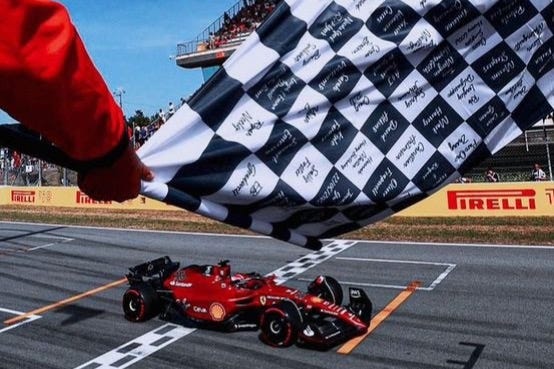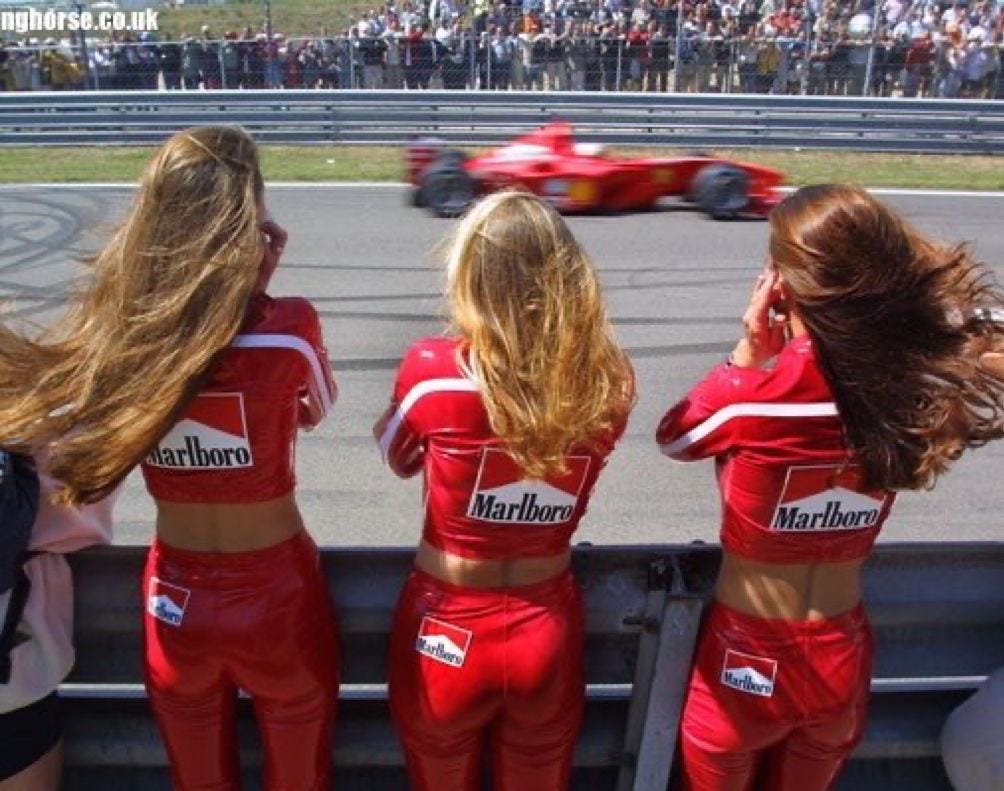PSA: I know many of you don’t follow Formula 1, but this isn’t just about racing. It’s about gender, visibility, and how women are still quietly pushed to the edges of the very spaces they’ve worked to carve out.
This also doesn’t apply to every influencer invited, however the topic resurfaces far too often for it to be a singular case.
If you’ve ever been dismissed, overlooked, or told you’re not enough—this one’s for you.
Every year, especially around certain races, something predictable happens: the cameras zoom in, the outfits get louder, and influencers show up. They pose. They party. They post TikToks and thirst traps about drivers whose names they can barely pronounce. They’re everywhere—on the grid, in the paddock, sharing “insider” content they don’t understand.
And somehow, the fans who know what a DRS zone is, who watch practice sessions and know the difference between a hard tire and a soft, are the ones being interrogated about their fandom. They’re the ones told to chill, to let people enjoy things.
But this isn’t gatekeeping. It’s about respect—for the sport and for those who have been part of it from the start. When F1 is reduced to “hot drivers and cool cars,” it diminishes everything that makes the sport special. It strips away the complexity, the stories, the emotion, and turns it into a backdrop for self-promotion. And worse, it erases the true fans who’ve supported this world long before it was a trending hashtag.
Imagine planning a wedding, pouring months of love and effort into every detail. When the big day comes, a bunch of people show up just to look good, treat the event like a fashion show, and don’t even know your names. That’s what it feels like when influencers are given access to spaces they don’t respect, all while the real fans remain on the sidelines, ignored.
This isn’t a one-off; it’s a pattern. When women do get visibility in motorsport, it’s often through the lens of beauty or performative fandom, not expertise. The message is clear: the only women worth recognizing are those who are pretty, passive, and clueless. It’s the same narrative in any space where women have been historically excluded—gaming, tech, sports. Women are not seen as fans, creators, or experts; they’re accessories to the sport’s aesthetic.
But motorsport is more than that. There are fans who understand tire compounds, who break down team strategies, and who analyze races with a depth that goes far beyond surface-level glances. And they don’t do it for the views or likes—they do it because they love the sport. Because it’s theirs, too.
When some influencers perform ignorance for the camera, it makes it harder for anyone else to be taken seriously. One influencer once even said they were invited to do a “hot lap,” only to assume that meant they’d be tossed into an F1 car, and sent flying around the track, without understanding the complexities of the experience or the preparation involved. These are the same people who drop statements like “I thought every driver races individually on track,” further proving how little they’ve bothered to learn.
How can anyone be seen as a knowledgeable and passionate fan when the influencers with the biggest platforms can’t explain how a pit stop works?
It’s not about saying no one else should have a voice. It’s about acknowledging that when someone is handed a platform, there’s a responsibility to show respect for the sport, its fans, and its culture. If someone’s given access to the paddock, the least they can do is show some curiosity, ask questions, and listen. It’s about turning up with respect for the sport, not just showing up for the photo op.
No one expects influencers to be experts. But there’s a difference between being visible and being seen. Visible turns someone into a prop. Seen means being recognized for more than just an aesthetic. And that’s what this is really about.
Performative fandom isn’t harmless. It reinforces the idea that women in motorsports only belong if they’re easy to digest—if they fit into a neat, superficial box that’s just for show. But motorsport is not about trends. It’s about passion, history, and respect for the people who have invested their time and energy into it.
Women aren’t props. They’re not trends. They’re fans. They’re creators. And they’re not going anywhere.
I hope you all enjoyed this somewhat different piece! I plan on writing an extensive essay about women in F1 and football in the near future, so this could be considered a prologue of what’s to come.
Thank you for making it to the end! Until next week,
Alina <3




